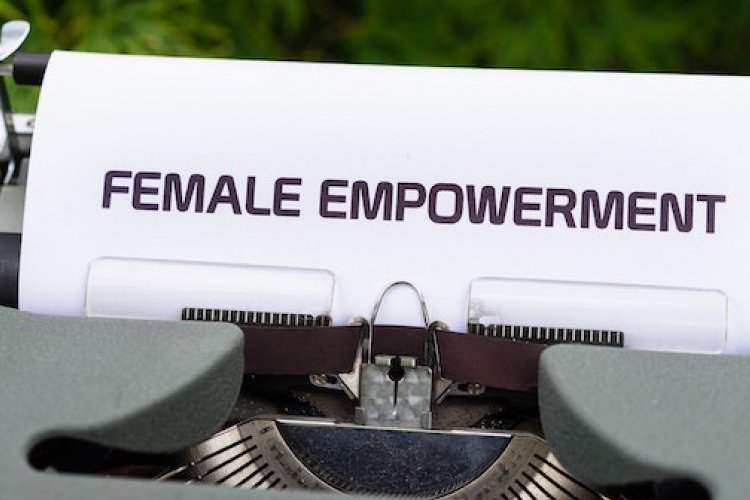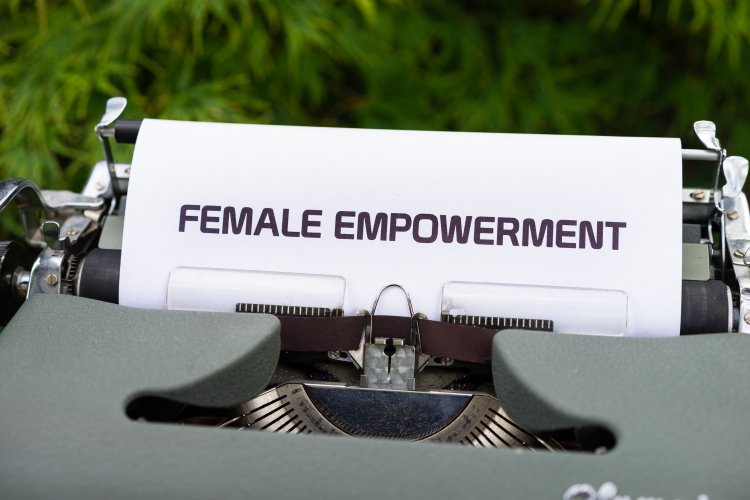China Needs Its Own #MeToo
This post comes courtesy of our content partners at TechNode.

The reports of Jason Caldbeck’s history of sexual harassment has opened up a deluge of allegations against prominent members of many in publicly visible communities.
As Ben Thompson has astutely pointed out, much of the reason these men were able to get away with it for so long has much to do with the power that they hold and the ability to decide who gets what. Much like incumbents in traditional industries, these leaders acted as gatekeepers: determining who gets what funding, which part in a movie, or what job.
When news of Jason Caldbeck’s misbehavior broke, we at TechNode began to immediately ask, How often does this happen in China’s VC and startup community? We were able to find plenty of women willing to share their story. Having someone listen without judgment about previous trauma can be very therapeutic. Indeed, we heard stories about prominent venture capitalists and supposedly upstanding members of the startup community. However, we are not investigative journalists (as much as we might aspire to be) and found it difficult to find women who would go on the record (for fear of retaliation) or who had evidence (without which we could not publish accusations).
When I first came to China, I was struck by an apparent absence of rules. In the US, I was comforted that no matter what petty injustice (someone cutting in line, running a red light, or just being a general asshole), that eventually the perpetrator would eventually get their comeuppance, either through someone calling them out, through our justice system, or just some naive belief in a generalized universal principle of karma. In China, however, that comfort was nowhere to be seen: people talked and acted like it was the law of the jungle, not the law of man (or rule of law, even!). Certainly, in my 10 years here, things have gotten better; younger generations are more prone to follow the rules that their parents paid no mind to, but that doesn’t mean that gatekeepers have changed their behavior.
China has been, and still is, a country rife with unethical and immoral behavior. While the corruption crackdown has certainly gone a long way to stem the tide of some of this behavior, old habits die hard. Not only are those old habits still alive, but since there’s no one talking about it, these unhealthy and damaging behaviors continue unabated and unpunished.
As someone who has dealt with abuse (both personally and professionally), I know how damaging these traumas can be. If you’ve experienced harassment or have been coerced into doing something that you didn’t want to do, please know that you are not alone. If you need support, please tell someone. If you want the cycle to end, please speak out about it. It’s never too late to take back your power.
Finding your voice
I had the great pleasure to speak recently with Sophia Huang Xueqin, an independent journalist and founder of Anti-Sexual Harassment (ATSH), a platform for victims to share stories, find tips and counseling, and fight for equal rights. While she may not be in tech, her story (and those you will find below) reflects the situation that many women (and some men) find themselves in: forced into something they never did nor would ever ask for.
While working at a large national news agency in Guangzhou in 2011, she was invited to do a high profile interview in Shenzhen of a foreign diplomat. After the interview, her mentor (referred to as E here) – a man of high regard and status in her company, a gatekeeper for young journalists – came to her hotel room on the pretense of finishing his work. Instead, it turned into a sexual assault where E hugged her tightly and tried to kiss her. To get away, she had to knee him in the groin and ran to the room of another colleague (W). After returning to her room, E refused to leave and even tried to convince W to leave the two of them alone. It was only after Sophia called a local friend to stay with her, that E actually left.
It wasn’t until the story of the rape of a young female journalist came out that Sophia decided to make her own story public. After she did, she found so many other women who have been similarly victimized. Upon hearing their stories, she dedicated herself to speaking for those who, for fear of retaliation, fear of a bad reputation, felt they could not speak for themselves. As part of the ATSH project, she conducted a survey of over 200 women and the results were astonishing.



The numbers speak for themselves.
Below is our translation of a recent post on Sophia’s ATSH WeChat Official Account detailing the assault and harassment of women in Chinese journalism. Many of them, however, chose to stay anonymous for fear of retaliation or being blackballed. We asking readers to spread and take part in this survey (in Chinese) even if you have not experienced a similar situation before.

Since October 2017, #MeToo has been widespread on social networks, where millions of people have used the hashtag to come forward with their experiences and support. Unfortunately, that does not echo much through mainland China.
We have to admit it, in China, this sort of problems do exist. It is a lack of courage that kept us silent. Well, a few years ago I resigned my previous job for a leading Chinese media. My excuse was “to try a different platform” when people asked me why I decided to quit at that time.
Last year, when the Nanfang Daily rape case broke out, I was upset because some criticism was about the victim, the female intern from Jinan University in Guangzhou: “Maybe she’s just an open person”; “The way she dressed was way too sexy”; “She even had tattoos!”
So I took up my courage to say, ME TOO. In the Chinese media circle, she was not the first victim, and neither was I. There are many cases, which could be her, him, and you.
My female friend A was a news anchor five years ago, when she was in the TV station, her lingdao (领导, Chinese for leader) always asked her “accompany them while eating and drinking.” “I felt like to feast and chat with the lingdao was my major work.” So she quit the job in less than one year.
Four years ago, my friend B resigned as a reporter. Before she left, she repeatedly complained that a department director often called her at late night saying: “Do you want to come to my house or can I go to your place?” Such thing happened many times even though she replied unequivocally “no” every time. I knew this director as well, but I did not see this side of him until he called me one night.
It was also four years ago that another reporter C resigned, but so far she did not say anything about it. I remember once during our business trip I saw through the rearview mirror my lingdao putting his hand on her thighs several times. So what she could do was to move closer to her side of the door to avoid more physical contact. I hate myself for not standing up for her at that time.
My friend D once had a dinner with colleagues at her lingdao‘s home. He proposed her to stay after the meal to “improve her article.” However, what she experienced was violent physical harassment. She kicked him down with all her strength and anger and handed the resignation soon after.
Friend E is a professional reporter, cheerful, attractive. Her lingdao liked to bring her on the business trips, saying, “Your goal is to be the proper ‘three company’ (Chinese slang for escort girls), you should accompany us to eat, drink, and scribe. Don’t get us wrong, and it’s ‘scribe’ not ‘screw’.” She did not take it seriously though until one drunk lingdao started to take off his trousers in front of her.
I can keep on telling more stories like this. The victims are different in personalities, and they encountered different levels of harassment. The result is the same: keep silent and leave no matter how much they loved about this career in journalism. Just look at this mail sent to a Caixin reporter from a reader, how can you ignore the problem?
 How did your father f** you last night? I f****d your mother so hard and c*** on her face.
How did your father f** you last night? I f****d your mother so hard and c*** on her face.
How did you get your job in Caixin you c***?
Does your father f*** your brains out every night?
What a s*** article you wrote.
Open your c*** and let your father f** you, you motherf****er, you moralless unprofessional b***!
A study on Twitter in 2014 found that female reporters were three times more likely to receive insulting comments than men. An article published by the Committee to Protect Journalists suggested the troll that insulters frequently used was “Women who speak too much should be raped.” Surveys showed that the proportion of women who have involved in sexual harassments in the United States, Japan, Germany, and India is between 30 and 40 percent, most of which are workplace harassments.
Journalists should have stronger power to speak up by nature, and fearlessly we often defend the rights of other groups. However, when our rights get violated, we lost our voice. The victims suffer the same like others, which is even more helpless.
I used to back down, kept silent and left quietly. Meanwhile, after so many years, I still trembled and felt petrified when an unknown call came at night from the city I escaped from, even though I was with my beloved and dearest friends.
So, this time, I decided to break the silence, expose the scar, and get ready to brave the storm.
What I want to know from the survey is how many people in China’s female journalists’ group have been subjected to sexual harassment, what media companies have done on anti-harassment policy, any related training and regulations; and how people do to deal with and prevent harassment?
So if …
- You have such experience and want to stand up against sexual harassment, support for the victims, then please take pictures using hashtag #MeToo just like I do, and send them to me.
- You want to share your story with me, then leave your contact with me. Rest assured, I will protect your identity.
- You have no such experience (which is good, may you never experience it), but you want to stand up against sexual harassment, support the victim. Then take a picture with #MeToo.
- You are a reader and want to do something for anti-harassment, please do this anonymous survey, it will not take so much time, thank you. If you have no time to do this, please share the post which makes even less effort. Your help is appreciated.
Images: the Beijinger, courtesy of TechNode, Sophia Huang Xueqin






